
Outside tech, Leo finally won the Oscar.
In the tech world, 2016 wasn’t a year of massive checks and volatile claims. It was a year of shutdowns, scale-backs, reorganizations, and much-needed perspective.
Here’s a rundown of some of India’s tech movers and shakers in the headlines this year.
1. Netflix launches in India
Netflix rang in the year with a huge Asian push when it launched its services in more than a hundred new countries, including India, Singapore, South Korea, Vietnam, Pakistan, the Philippines, and Indonesia. This effectively brought the global streaming war to India. Amazon followed suit with Prime video later in the year.
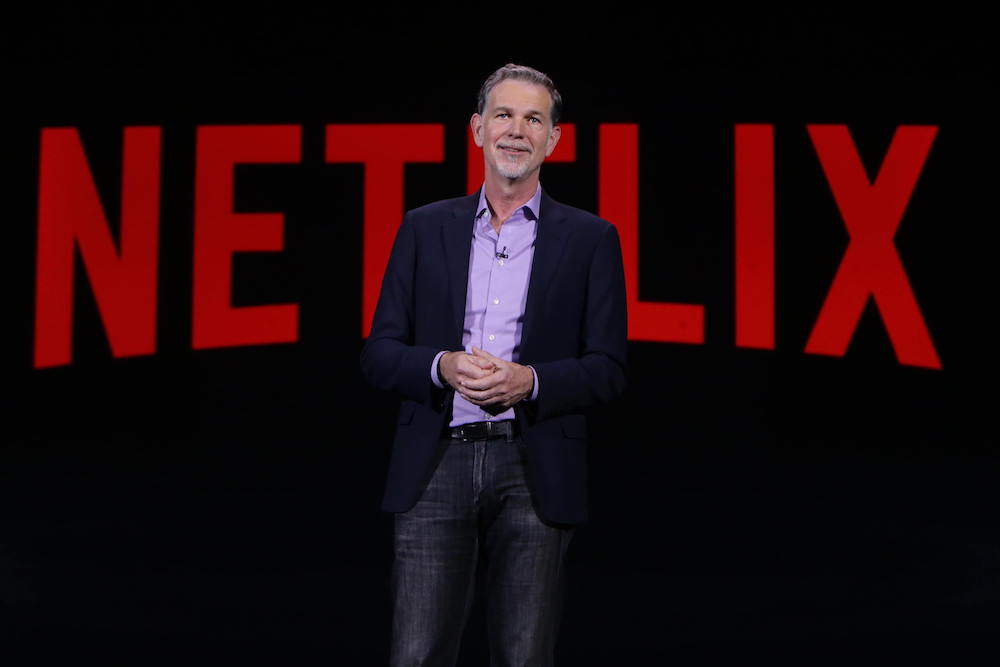
CEO Reed Hastings onstage at CES 2016. Photo credit: Netflix.
Read about Netflix’s launch here and Amazon’s here.
2. India bans Free Basics
After months of blaming and counter-blaming, the Telecom Regulatory Authority of India (TRAI) ruled in favor of net neutrality, saying no service provider should have the right to charge different prices for data services based on content. That effectively stopped Facebook’s Free Basics, Zuckerberg’s initiative to bring poor people online with cheap internet packages.
The TRAI said it will charge US$735 for each day that a service provider goes against the ruling. This fine will be implemented after six months, and the newly passed regulation will be reviewed after two years.
Read about it here.
3. Binny Bansal takes charge at Flipkart
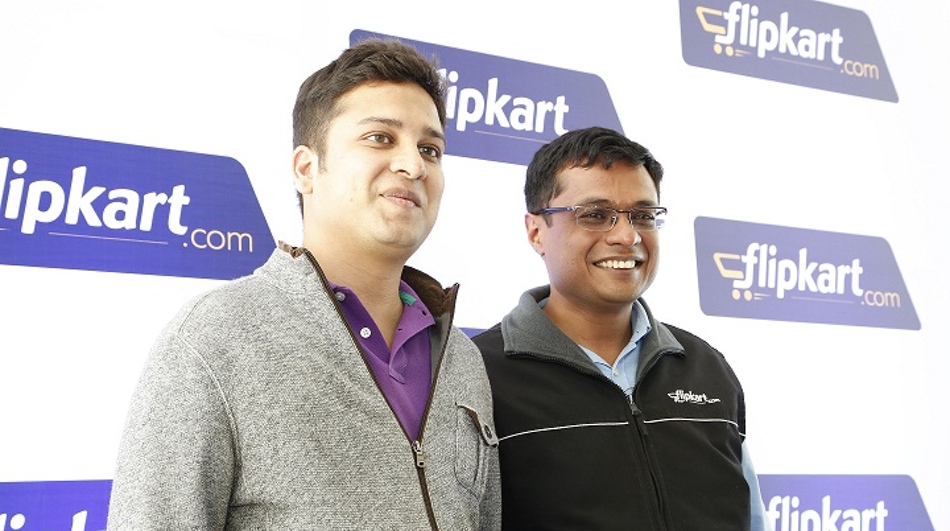
Binny Bansal (left) and Sachin Bansal are the two co-founders of India’s top homegrown ecommerce startup. Photo credit: Flipkart.
Flipkart, India’s biggest ecommerce marketplace, rejigged its top-level management. Co-founder and chief executive officer till then, Sachin Bansal became executive chairman of the company. Binny Bansal, until then chief operating officer and fellow co-founder (they are not related), took charge as chief executive. This, of course, was the beginning of a year of organizational changes and employee exits, including those of its CFO, head of commerce, chief products officer, and chief business officer.
Read the story here.
4. Woman in the unicorn club
In a year when funding has been hard to come by, and startups are shutting shop, ecommerce company ShopClues became a freshly minted unicorn. Not just that, co-founder Radhika Aggarwal became India’s first unicorn entrepreneur.

Radhika Aggrawal of ShopClues. Photo credit: Shopclues.
Read about it here.
5. Ecommerce policy change
India approved 100 percent foreign investment in marketplace ecommerce companies, formalizing rules for the multi-billion dollar sector for the first time. But while foreign investment was given the go-ahead, the Indian government tightened its leash by adding caveats. Marketplaces are not allowed to influence discounts anymore, and they cannot have more than 25 percent of sales come from one vendor.
Read about the details here.
6. Myntra eats humble pie
India’s biggest fashion app Myntra (owned by Flipkart), decided to admit defeat and bring its desktop version back. This was after the startup yanked its desktop and mobile websites, meaning people could only buy things from its app. This annoyed a lot of customers.

Photo credit: Art Comments.
“We have been humble enough to realize and listen to our customers’ needs and hence, we are relaunching the desktop version on June 1,” chief executive Ananth Narayanan said.
Read the story here.
7. PepperTap shuts shop
India’s third-largest online grocer PepperTap, which had raised over US$50 million, shut shop. This was one of the early stories of shutdowns and cutbacks that would flood the Indian startup ecosystem through the year. PepperTap was joined by LocalBanya, TinyOwl, Zoomo, AskMe, and Doormint, to name a few.
Read the story of PepperTap’s shutdown here.
8. Nikesh Arora quits SoftBank
This wasn’t an Indian story per se, but given the kind of reaction it drew from the country’s startups, it might as well have been. Nikesh had, after all, been instrumental in driving investments in many Indian startups.
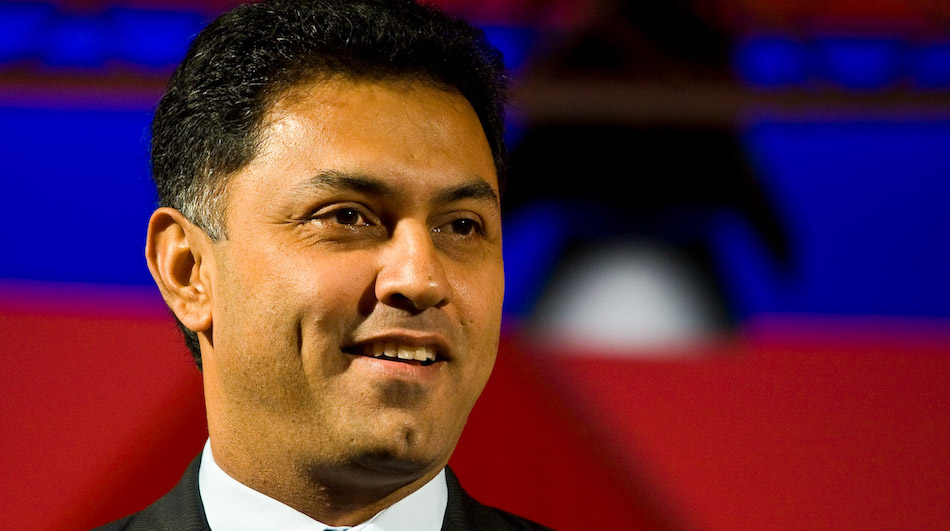
Photo credit: Eirik Solheim.
In April, a group of investors in SoftBank called on the board to investigate and possibly dismiss Nikesh Arora. Then in June, the heir apparent to Masayoshi Son resigned from his post as president and chief operating officer.
The move came only hours after an independent group of SoftBank’s board of directors said it found no merit in the claims of wrongdoing leveled at Nikesh in the past few months.
Read about the entire saga here and here.
9. Flipkart buys Jabong
Online fashion company Jabong had been struggling for some time, and Myntra, Flipkart’s fashion unit, snapped it up. For about US$70 million in cash, that is. This created the biggest online fashion portal in India today – Flipkart now owns about 85 percent of the online fashion industry.
Rocket Internet, the main stakeholder of Jabong, was in talks with Amazon, which wanted to quickly build its fashion category in India to compete with Flipkart (which had acquired Myntra). The valuation talks hovered around a billion dollars, then fell to about US$700 million between October 2014 and January 2015.
Read about the deal in details here.
10. Demonetization
Indian Prime Minister Narendra Modi announced that banknotes of 500 and 1,000 rupee denominations would be withdrawn from circulation stat, as the government cracks its whip against corruption and counterfeit currency. Startups rejoiced.
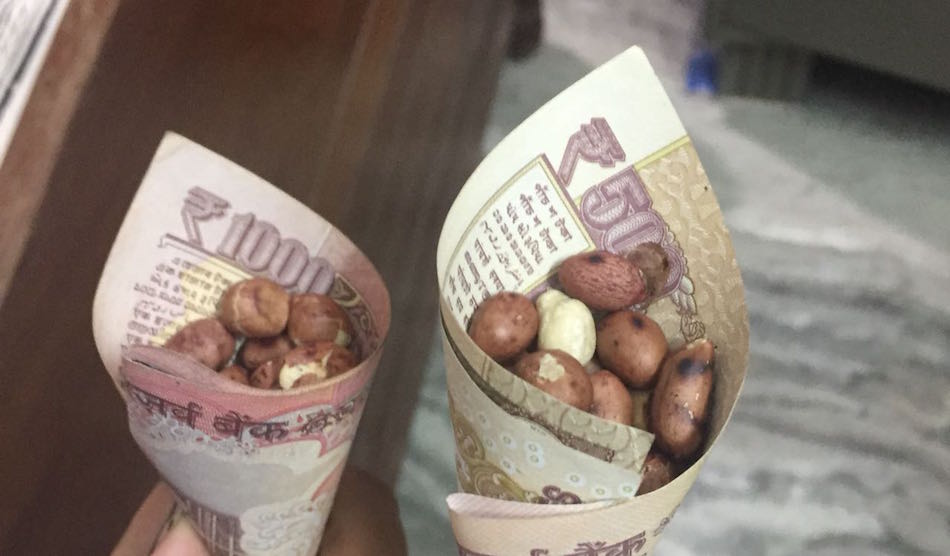
An image doing the rounds on WhatsApp as a joke.
Top startup founders were quick to voice their support for the move, as Indians were nudged towards online payments and cashless transactions.
Read about how the move helped startups here.
11. Flipkart, Ola turn “crybabies”
Flipkart founder Sachin Bansal and Ola founder Bhavish Aggarwal urged PM Narendra Modi’s government to make policies which favor homegrown companies, instantly turning the ecosystem against them.
“What we need to do is what China did [15 years ago] and tell the world we need your capital, but we don’t need your companies,” Sachin said at the Carnegie India Global Technology Summit.
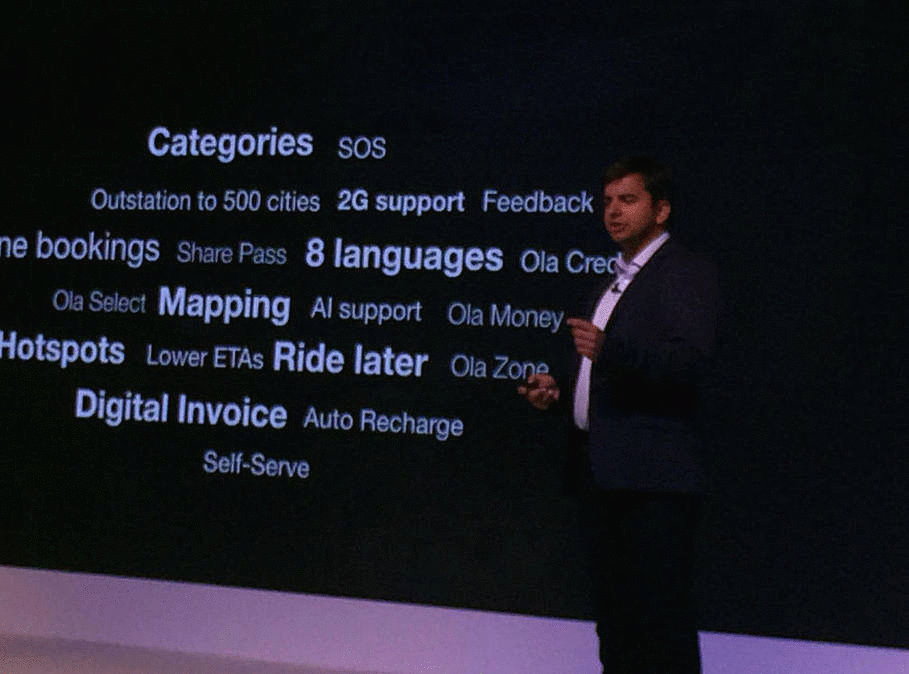
Ola’s Bhavish at a launch event . Photo credit: Tech in Asia.
“You might call it capital dumping, but it’s a very unfair playing field for the Indian startups and something needs to be done about it,” Bhavish said at the same event.
Industry insiders called them out for being hypocritical and acting like crybabies.
Read about it here.
12. India sets rules for app-taxis, allows surge pricing
India charted out a fresh set of rules for the transport industry, giving Ola and Uber a handbook to refer to.
This was a major step in the history of the country’s transportation laws, and a great relief to the app-based taxi startups, which have gone on and off the roads due to a lack of clear regulations.

Photo credit: Wikimedia.
The new regulations have also allowed surge pricing within reason.
“Innovation is always ahead of regulation… Uber is disrupting the world and when disruptions like these take place India must have the capability to understand and modify and change regulations to keep with the innovation,” the CEO of the National Institution for Transforming India said.
Read about the new rules here.
This post A dozen tech stories that rocked India in 2016 appeared first on Tech in Asia.
from Tech in Asia https://www.techinasia.com/biggest-tech-stories-india-2016
via IFTTT

No comments:
Post a Comment